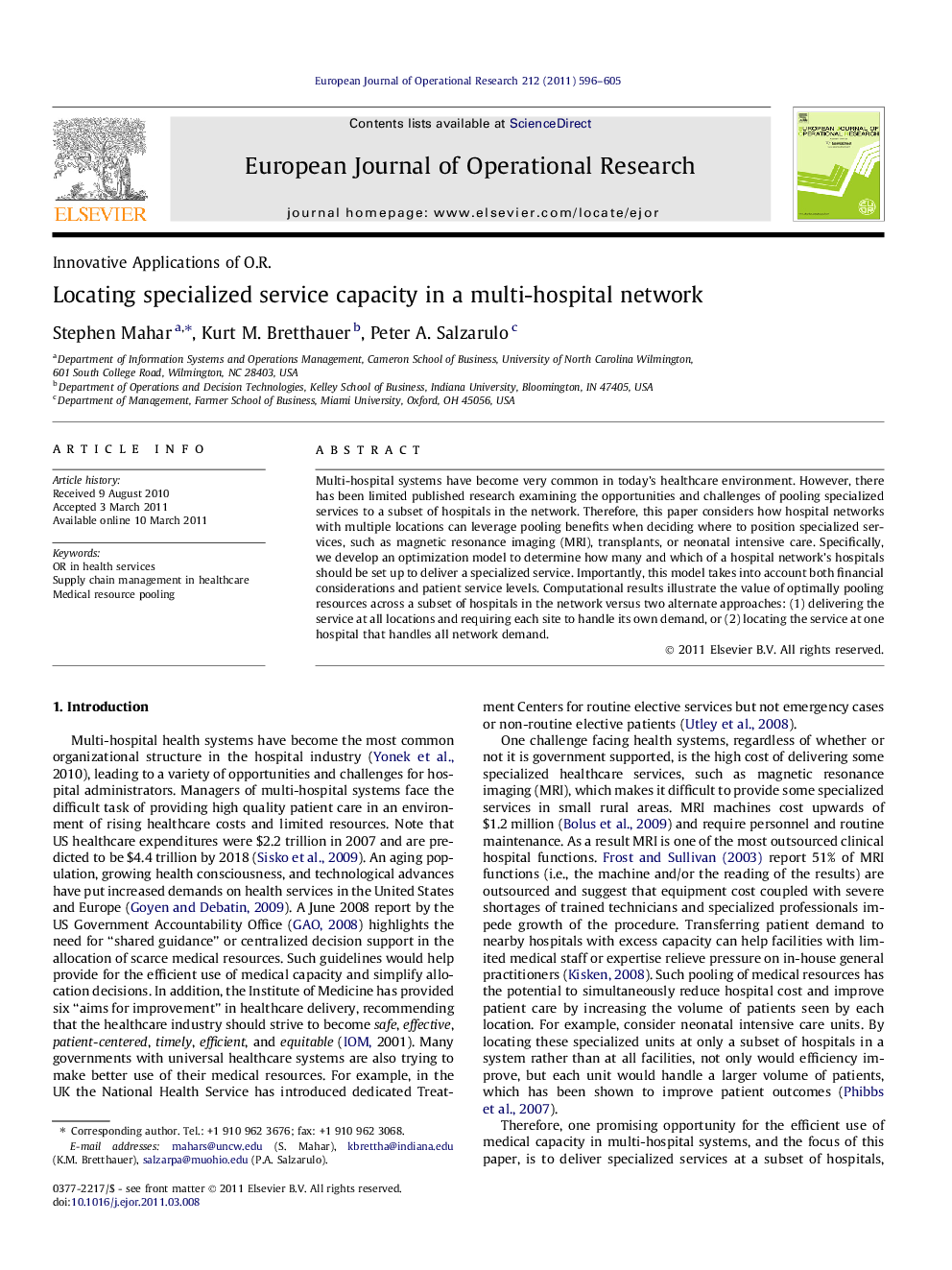| Article ID | Journal | Published Year | Pages | File Type |
|---|---|---|---|---|
| 481557 | European Journal of Operational Research | 2011 | 10 Pages |
Multi-hospital systems have become very common in today’s healthcare environment. However, there has been limited published research examining the opportunities and challenges of pooling specialized services to a subset of hospitals in the network. Therefore, this paper considers how hospital networks with multiple locations can leverage pooling benefits when deciding where to position specialized services, such as magnetic resonance imaging (MRI), transplants, or neonatal intensive care. Specifically, we develop an optimization model to determine how many and which of a hospital network’s hospitals should be set up to deliver a specialized service. Importantly, this model takes into account both financial considerations and patient service levels. Computational results illustrate the value of optimally pooling resources across a subset of hospitals in the network versus two alternate approaches: (1) delivering the service at all locations and requiring each site to handle its own demand, or (2) locating the service at one hospital that handles all network demand.
► A model specifying where to locate specialized service capacity in a hospital network. ► Optimally pooling resources in a network can improve cost and patient service levels. ► Benefits increase in networks with more flexibility to divert patients.
